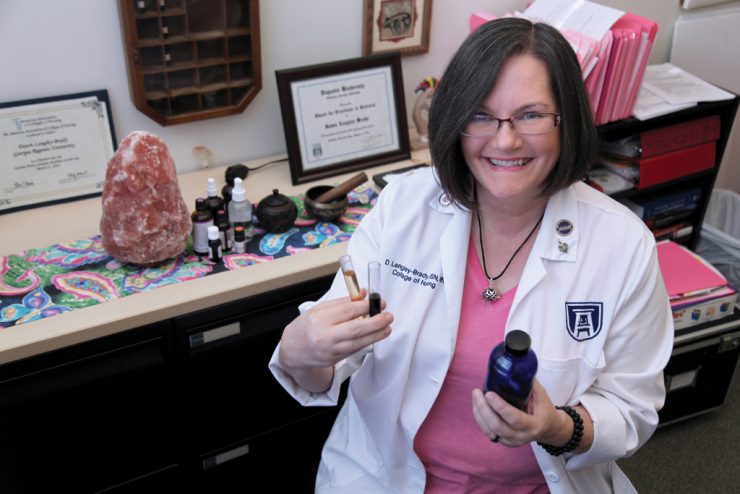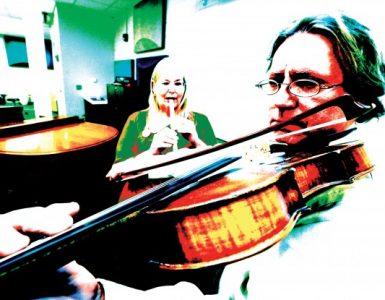According to industry reports, the essential oil market is expected to reach $12.8 billion by 2023, and anyone who’s found themselves strolling the natural supplement aisle of any pharmacy can attest to their popularity as a natural sleep aid or anxiety reliever. But can essential oils aid in pain relief? The answer is yes, and Dawn Langley-Brady, a faculty member and doctoral candidate in the College of Nursing, tells us how.
What are essential oils?
Essential oils are drawn from aromatic plants having either internal or external secretory structures. These oils are adaptogenic and help protect the plant from invading species, viruses, bacteria, fungi, etc. In humans, inhaled essential oils affect the limbic system of the brain and when topically applied, they elicit physiological changes at the site of application.
How are essential oils different from what an herbalist might use?
While an herbalist might dry rosemary and use it as a tea or in a plant tincture, an aromatherapist will use the resulting essential oil from rosemary that was steam-distilled or CO2 extracted, which is upwards of 100 times more concentrated.
How can essential oils help?
My research [funded by the American Holistic Nursing Association and the American Nurses Foundation and supported by her dean] is looking at reducing chemotherapy-induced peripheral neuropathy in breast cancer survivors. The typical medications for neuropathic pain cause numerous side effects, including dry mouth, weight gain, foggy-headedness, forgetfulness and memory loss.
Are there any dangers to using essential oils?
The majority of essential oils must be properly diluted. Many essential oils cannot be used with certain medications, on children under 10, or by people with seizures, certain diagnoses, and hormone-linked cancers like ovarian, breast and prostate. If someone doesn’t know what they’re doing, they have the potential to harm themselves or their loved ones, and that is the last thing we want.
How can a person become educated about essential oils?
The best method for educating is reading reliable information and taking an introductory aromatherapy course; the National Association for Holistic Aromatherapy is a great resource. Also, people need to ensure the essential oils they use are pure and not contaminated or mixed with other chemicals to mimic a pure essential oil.
What is the future of essential oil use?
We will have to look to our plants in the near future to help fight multiple drug-resistant organisms and reduce pain without the use of opioids. We will soon see mainstream health care become more accepting of aromatherapy as a complementary therapy. One day I’ll be in front of Congress fighting to get essential oils the protections herbs are afforded under the Dietary Supplement Health and Education Act.





